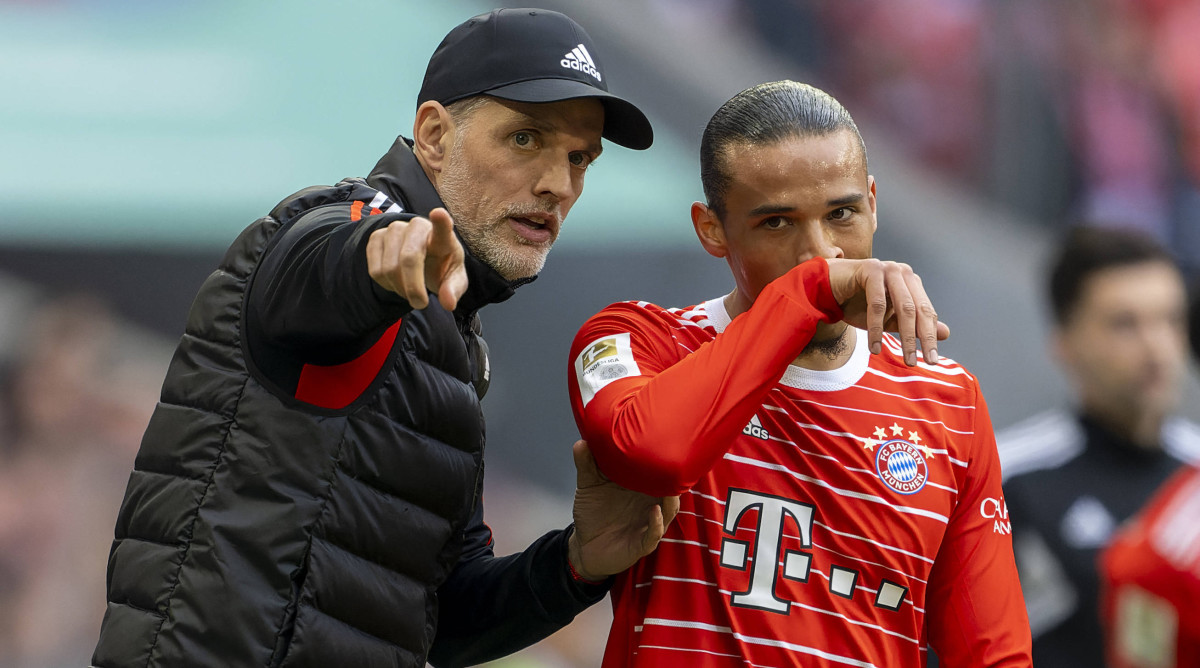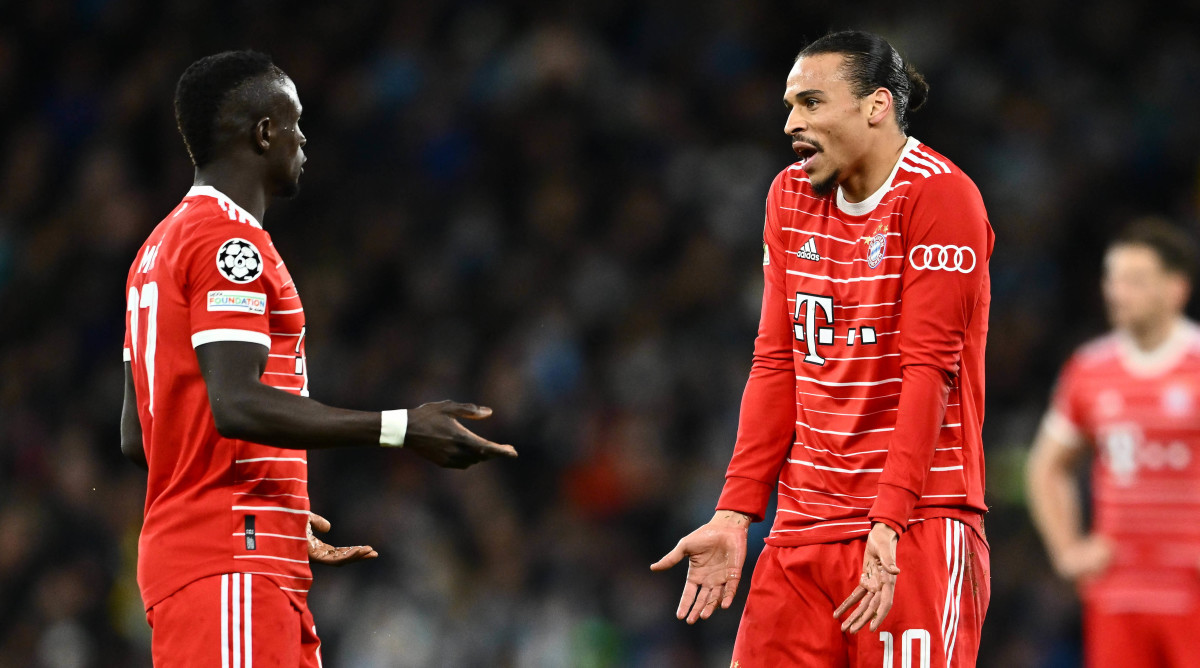Bayern Munich’s Problems Persist As Bundesliga Race Hangs in the Balance

Bayern Munich is top of the Bundesliga. The way is clear again for it to win an 11th Bundesliga title in a row, which is where the problem lies. The Bundesliga title is taken for granted—as it should be when Bayern’s annual revenues are 83% greater than that of its nearest rival, Borussia Dortmund. Not to win it would be an embarrassment. That makes assessing how the team is doing extremely difficult—and that, really, is what underlies the present mess.
Thomas Tuchel’s eight games since replacing Julian Nagelsmann have brought three defeats and two draws. In a month under Tuchel, Bayern has dropped out of the Champions League quarterfinals to Manchester City, out of the DFB-Pokal quarterfinals to Freiburg and, temporarily, lost first place in the Bundesliga. Worse, Sadio Mané has been suspended for allegedly striking Leroy Sané and there have been rumors that Bayern CEO Oliver Kahn and sporting director Hasan Salihamidžić could be ousted.

Nagelsmann was sacked at the end of March with Bayern top of the league and approaching the Champions League showdown with Manchester City. He had won 60 of his 84 games as Bayern manager and had lost only three games in all competitions all season. This was not a normal dismissal in any sense, but neither was there any suggestion of some hidden off-field scandal—although turning up to training on a skateboard probably didn’t help perceptions, and there was something slightly strange about him being on a skiing holiday when the decision was taken.
Rather, the board said that Nagelsmann had been dismissed because of declining league performances and a lack of player development. And it is true that Bayern had lost two and drawn three of their 10 Bundesliga games since the World Cup. But on a more tangible level, the feeling seemed to be that Bayern’s hierarchy felt the club would have a better chance of beating Manchester City in the Champions League under a different coach.
Nagelsmann had won all eight of his Champions League matches this season, but his record in the biggest European games is mixed. Bayern’s defeat to Villarreal in last season’s quarterfinals was a clear opportunity missed, while defeats with RB Leipzig to Liverpool and Paris Saint-Germain in previous years were notable less for the outcome than the dullness of the performance.
Bayern may have eliminated PSG under Nagelsmann this season by a comfortable 3–0 aggregate, but even then it was possible to argue that the game was closer than it should have been, that Bayern did not press home its advantage in the first half of the first leg and ended up coming under needless pressure late on in that game in Paris. Read that way, sacking Nagelsmann could be seen as a ruthless, perhaps even bold, decision by a board capable of seeing beyond results. But it was a gamble and early results under Tuchel have not justified it.
Tuchel and Bayern are fortunate that Dortmund has drawn two of its last three away games, stuttering just as the title came in sight. With four games to go, Bayern remains on top by a point. At the end of the season, it may be that Bayern’s 4–2 win over Dortmund in Tuchel’s first game in charge is what proves decisive. And Bayern, despite the 4–1 aggregate defeat, played well against City: The problem was less the tactical setup—the part that Tuchel can control—than individual errors. Many of those errors, notably the curious lack of urgency from Joshua Kimmich in the buildup to the first goal and Dayot Upamecano’s display, can probably be attributed to a team not used to being pressured domestically. Bayern’s domination, in other words, caused it to lose the necessary competitive edge.

That is a perennial problem, and not just for Bayern, but for many of the superclubs. Short of an overhaul of European football’s financing to make it more equitable, that’s not a soluble issue. But where Bayern has committed short-term errors is in recruitment. Robert Lewandowski was angered into leaving the club last summer, he says, because talks on a new contract stalled as Bayern pursued Erling Haaland. No top-class striker was signed to replace him. In part, that was because Nagelsmann wanted the fluidity that Bayern’s raft of wide and deep-lying forwards can offer, but the failure to take chances has been a major problem this season.
Signing a striker and soothing ruffled egos in the dressing room are not overly complicated issues. The bigger problem, even if Bayern does go on to win the league, is whether this shaky start has already undermined Tuchel. A couple of poor results at the beginning of next season and he could soon find himself going the way of Nagelsmann.
And that is the difficulty with the sort of domination Bayern has. The slightest deviation from perfection becomes a crisis, and that means bigger structural issues are never addressed.
